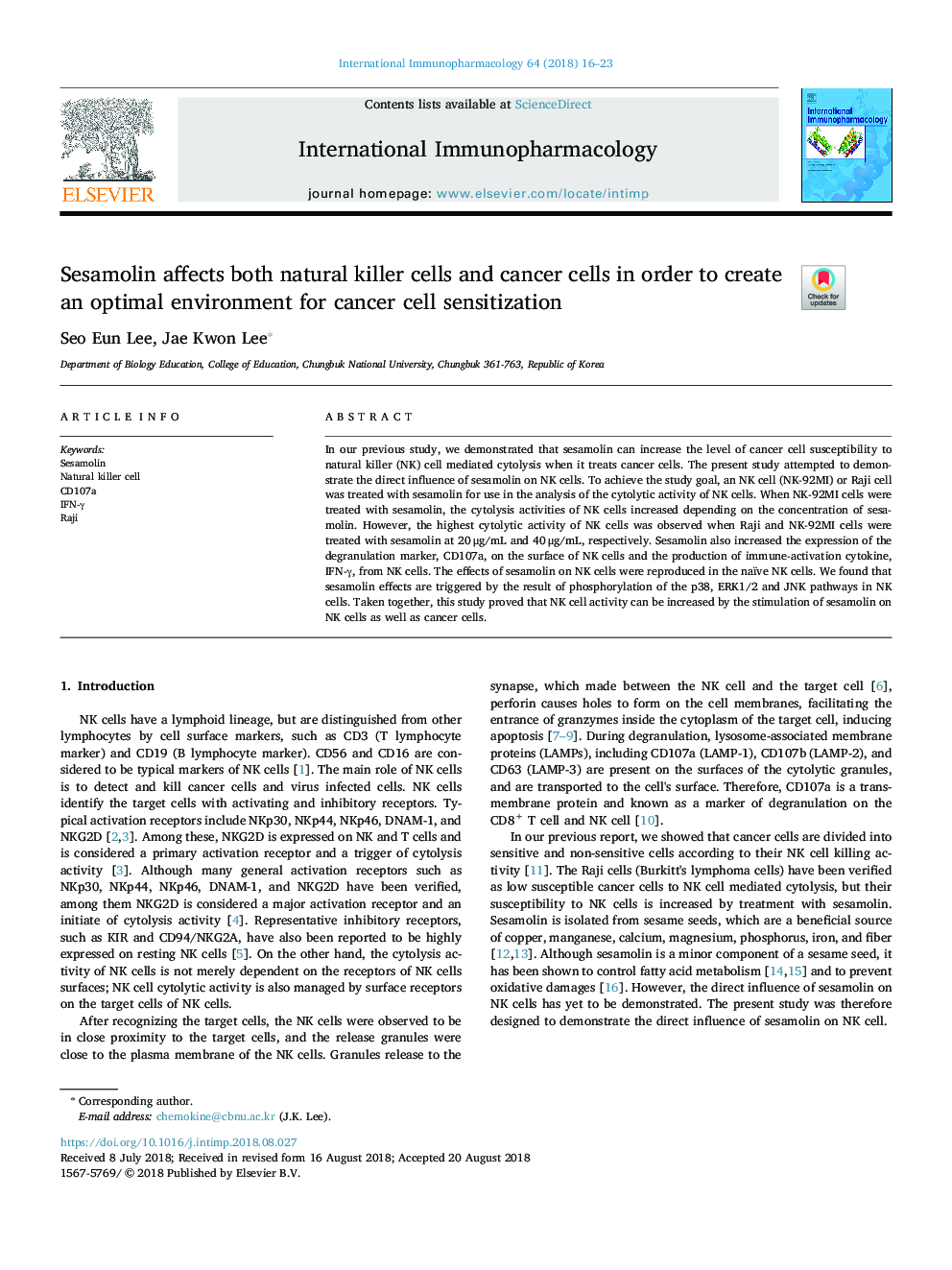| Article ID | Journal | Published Year | Pages | File Type |
|---|---|---|---|---|
| 8950102 | International Immunopharmacology | 2018 | 8 Pages |
Abstract
In our previous study, we demonstrated that sesamolin can increase the level of cancer cell susceptibility to natural killer (NK) cell mediated cytolysis when it treats cancer cells. The present study attempted to demonstrate the direct influence of sesamolin on NK cells. To achieve the study goal, an NK cell (NK-92MI) or Raji cell was treated with sesamolin for use in the analysis of the cytolytic activity of NK cells. When NK-92MI cells were treated with sesamolin, the cytolysis activities of NK cells increased depending on the concentration of sesamolin. However, the highest cytolytic activity of NK cells was observed when Raji and NK-92MI cells were treated with sesamolin at 20â¯Î¼g/mL and 40â¯Î¼g/mL, respectively. Sesamolin also increased the expression of the degranulation marker, CD107a, on the surface of NK cells and the production of immune-activation cytokine, IFN-γ, from NK cells. The effects of sesamolin on NK cells were reproduced in the naïve NK cells. We found that sesamolin effects are triggered by the result of phosphorylation of the p38, ERK1/2 and JNK pathways in NK cells. Taken together, this study proved that NK cell activity can be increased by the stimulation of sesamolin on NK cells as well as cancer cells.
Related Topics
Life Sciences
Immunology and Microbiology
Immunology
Authors
Seo Eun Lee, Jae Kwon Lee,
